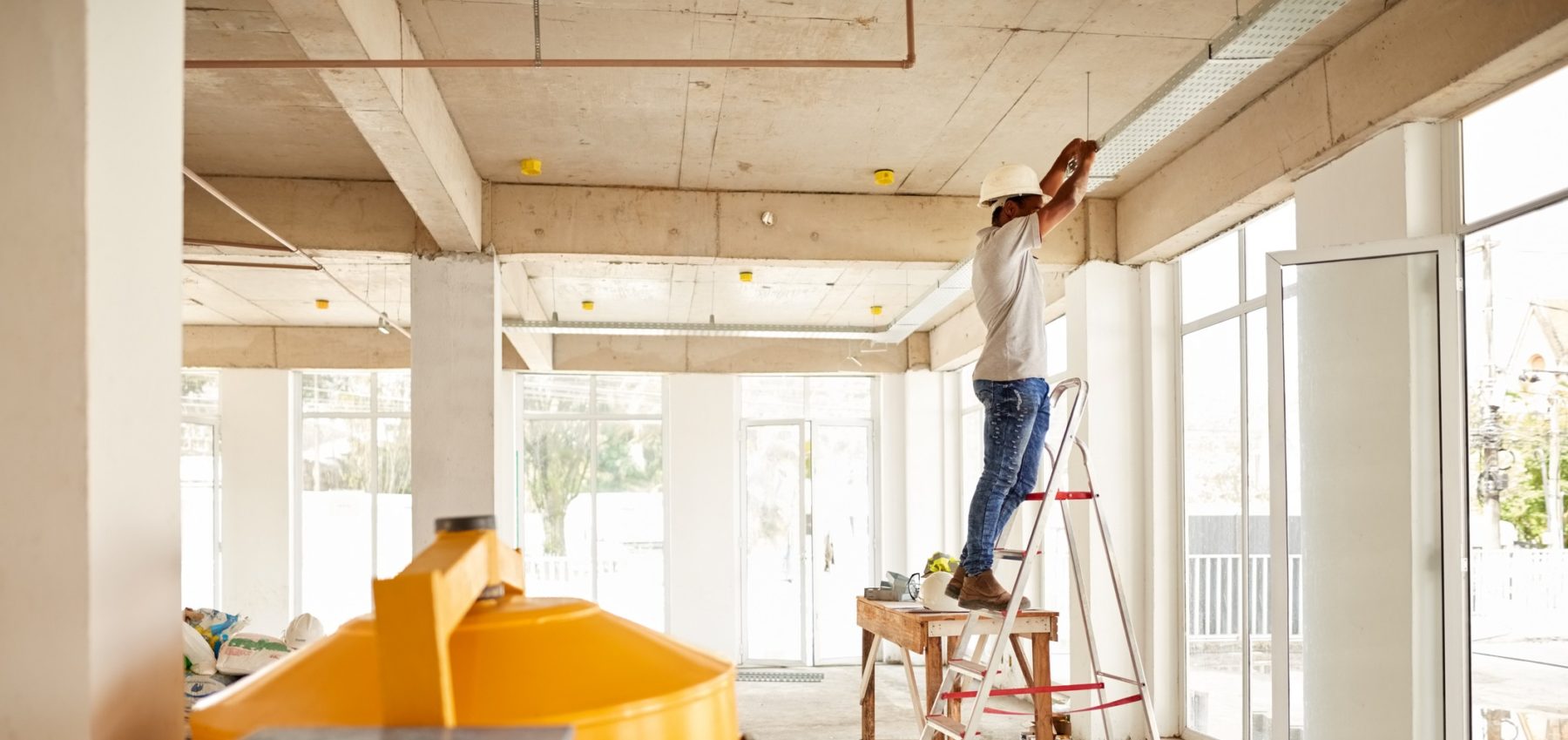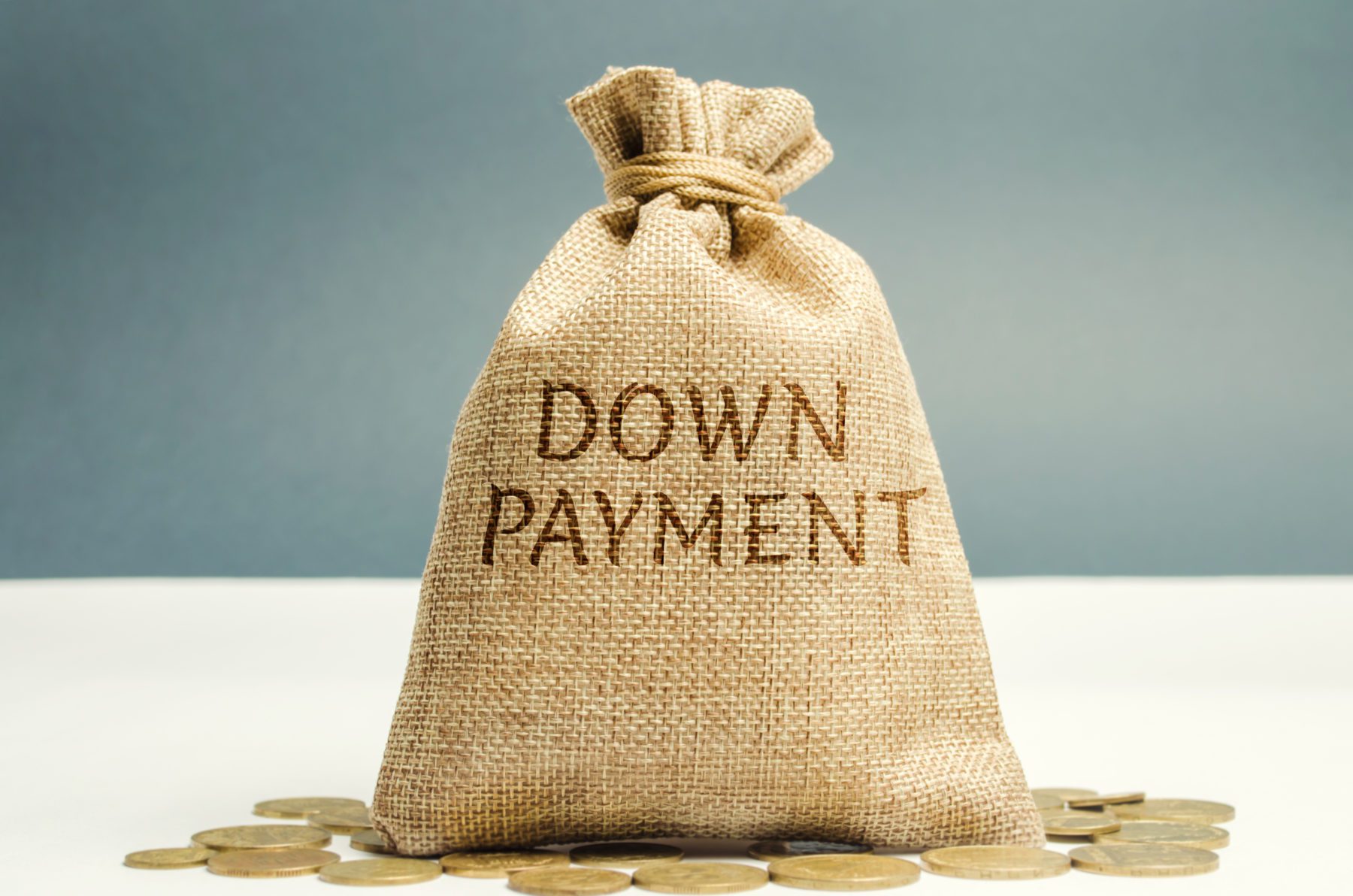7 Holiday Gift Ideas for New Homeowners

Have a new homeowner on your shopping list? This holiday season, why not give a thoughtful holiday housewarming gift they can use as they settle in to their new place? Whether you need gift ideas for new homeowners or are putting together a wish list of your own, here are some great holiday housewarming gift ideas.
7 New Homeowner Holiday Gifts
If you’re looking for the best housewarming gift ideas this holiday season, here are a few great examples to get you started.
1. Holiday Decorations
Holiday decorations can make wonderful first-time homebuyer gifts. If the new homeowner is putting up a full-sized Christmas tree for the first time, a lovely personalized ornament that commemorates the new home will become a special keepsake. Even if this isn’t a first home, a larger house will need more holiday décor. Themed pillows, metallic garlands, or illuminated table or wall décor are all welcome additions that add an elegant, festive touch to the new home.
2. Bartender Kit
The holidays are a time for gathering and for those who love mixing and serving drinks for family members and guests, a bartending kit makes a great new homeowner holiday gift. A quality cocktail set with a corkscrew, strainer, tongs, cocktail shaker, and more provides everything a new homeowner needs to mix delicious drinks just like they get at their favorite bar or restaurant.
3. Decorative Throws and Weighted Blankets
Who doesn’t love to curl up on the couch under a cozy, soft blanket while watching a movie or reading? A gorgeous decorative throw makes an ideal holiday gift for the new homeowner, and you can even choose one with a winter or holiday motif. There are many luxurious and affordable options that look beautiful casually draped over a chair when not in use.
A weighted blanket is another wonderful new homeowner holiday gift. The pressure from these cozy blankets is calming for many people and research shows they may reduce anxiety and help with insomnia in some cases. Even without these benefits, a weighted blanket can be a welcome way to make a new space more comfortable for new homebuyers.
4. Wireless Grilling Equipment
Outdoor cooking is a fun way to enjoy a new home, and there are plenty of great gadgets out there that can make it a superb experience. Wireless grilling tools such as thermometers, precision cookers, and lighters can help make sure food is prepared to perfection, making them the ideal gift for barbecue enthusiasts.
5. Cordless Stick Vacuum
While they may not be exciting, useful gifts for new homeowners may be the most appreciated, when all is said and done. While many people enjoy the process of vacuuming, the right tools can make it better for anyone. Cordless stick vacuums are convenient, easy to carry, and powerful, making the whole process of cleaning more palatable, if not thoroughly enjoyable!
6. Bidet Attachment
While it may seem like a gag item (and it might well be, depending on who you’re giving it to), a bidet attachment can be a great way to improve the quality of life for new homeowners. Bidets have been shown to be more hygienic and gentle than relying on toilet paper, and they’re easy to install too! What may start out as a joke may quickly become a valuable addition to a new home.
7. Sports Equipment
Finally, many new homeowners look forward to spending time outdoors, whether that’s in a spacious yard or within your new home community’s green spaces and parks. Sports equipment such as a portable badminton, pickleball or croquet set can make a good holiday housewarming gift for people who love to be active outside. They’re also excellent for getting a family out where they can meet neighbors and friends with similar interests.
Frequently Asked Questions about Housewarming Gifts
What’s a good gift to bring to a holiday housewarming?
Something festive always makes a good holiday housewarming gift. This might be a bottle of the homeowner’s favorite spirit, or some holiday décor. The first-time homeowner will appreciate anything they may never have needed while living in an apartment, such as a home tool kit, a gardening set, or a personalized name and/or address plaque to commemorate the purchase of the first home.
How much should I spend on a housewarming gift?
Great gifts come in all price ranges. Usually, $20 to $50 is a good rule of thumb, but at the end of the day, it’s more important for a gift to be useful or meaningful than to be merely expensive.
Is a gift card a good housewarming gift?
Often, housewarming gift lists and registries will include gift cards. A gift card can give new homeowners a lot of flexibility in how they furnish their new house, so it can be a good option if you’re at a loss for ideas or don’t know the recipient that well.
Creating a Warm Welcome at Lilyana by Hillwood
If you’re considering a move yourself, Lilyana by Hillwood is a great option in up-and-coming Celina, Texas. Located within Prosper ISD, our new home community offers homes from four of the top builders in the DFW area. Browse for new construction homes online or visit our builder’s models to see our beautiful community and amenities. Get in touch today!
Posted on November 15, 2022 by Taryn Dandurand
Is Fall 2022 Still A Good Time to Buy A Home?

So many of us are asking the same question right now: Should I buy a house now or wait until 2023? The short answer is, buy now! If you have the means, consider buying this fall.
The complicated answer is that this simple question depends on a number of factors around your family’s personal circumstances. However, on the whole, most experts and first-time homebuyers agree – it’s still a prime season for buying a home in Prosper, Celina, or Collin County.
Unlike some parts of the US, the DFW housing market is in a great place. The North Texas area is still in high demand, particularly because of its many new home communities.
Trying to decide whether to buy a house now or wait? Don’t wait too long and miss your opportunity. Consider these variables as you kick off your home search.
5 Reasons Why Now Is the Time to Buy A House
If you’re in a good financial position and your job is secure, it can be a great time to invest in a home. Ask any financial expert and they’ll tell you, owning a home or investing in real estate is the fastest route to building wealth.
Some reasons to buy a house now:
Credit score averages are on the rise.
Credit reporting agency, Experian, reports that, “The average credit score in the U.S. hit a record high of 714 in the third quarter of 2021, a 4-point increase from 2020.” Higher credit scores qualify buyers for the lowest interest rates. If you’ve been working on yours, now could be the time to cash in on the effort.
Interest rates tend to fall in the fall.
While it’s true that interest rates have gone up since their historic lows, they are still comparatively great. Plus, rates historically reach their lowest points of the year in Q4. What’s more, given where interest rates were just ten years ago, the average monthly mortgage payment has actually decreased. (Be sure to check the proposed tax rate in your area to get a better idea of your final amount.)
New build inventories are high.
The rush isn’t over, but home inventories are finally starting to catch up from where they were at the height of the buying frenzy. That’s especially true in new home communities like Lilyana by Hillwood, who have available homes from multiple top DFW homebuilders. That means more variety and inventory to choose from, making it a really a good time to buy.
Competition is cooling.
If the thought of engaging in a bidding war gives you pause, you’re certainly not alone. It can drive up the sales price of a home and draw out the time it takes to find your new space. Fortunately, data shows most homes have fewer bidders per listing right now. The National Association of REALTORS® reports that homes for sale are getting half as many offers as compared to Spring.
DFW has a strong job market.
If you’re going to buy a house, you really want job security. Plain and simple. Though no one can predict the future, Dallas and its many suburbs have some of the strongest job markets in the country, making it a great place to find opportunities. In fact, a recent report from the Bureau of Labor Statistics showed the local job gain rate increased 6.7%, almost double the national average.
Should you buy a house in 2022 FAQ:
- When is it too late to buy a home? As a rule of thumb, most financial professionals recommend spending no more than 30% of your gross monthly income on housing expenses. Once you exceed that threshold, you may need to wait until interest rates and/or home prices drop.
- When is it a good time to buy a house? The housing market has seasons. Generally, fall can be a less competitive time to buy a home. Sales prices and interest rates also historically tend to be lower during this time frame.
- Will 2023 be a good time to buy a house? Given how cagey the government has been about the economy, it’s unclear what the 2023 housing market will look like. Stay tuned to see what the federal reserve decides to do with interest rates.
- Is it better to buy a house in 2022 or in 2023? If you can financially afford it and the time is right for your family to settle, consider buying in 2022 to avoid potentially increasing interest rates in 2023.
Buy a New Home at Lilyana by Hillwood + Invest in Your Future
So, final verdict. Is it a good time to buy a home or is now a bad time to buy a house? You have our opinion, but do your own research and take your personal financial situation into account before deciding.
Just remember – things change quickly in real estate. Celina is the fastest growing city in North Texas, keeping attractive new home communities like Lilyana in high demand. That’s not only good for future resale value, it’s also a great place to settle and ride out whatever the economy does next.
Want to chat through your options and run your situation by a knowledgeable professional? Contact our builders for more information or take a virtual tour to see what Lilyana by Hillwood is all about!
Posted on October 15, 2022 by Taryn Dandurand
Is It Better To Build Or Buy A House?

Have you ever thought about having a house built? It’s not uncommon for people to dream about designing their ideal home, from the floor plan to the fine details. However, building a new house vs buying an existing one can be complicated, depending on the circumstances. If you’re uncertain about building vs buying a home, we will take you through some important points to consider before you decide.
Building A New Home
Having a house built within a master-planned community offers a more structured process than you would have if you buy a vacant lot in a subdivision. The infrastructure of a master-planned community will be established and there will be amenities like fitness centers, event pavilions, pools, parks, and playgrounds that are either available to residents now or planned for the future.
Additionally, the building process in a planned community is simplified as well. You can start by choosing your lot or the home design you want from an array of available options. Then, construction begins. The home builders at Lilyana by Hillwood offer homebuilding sites in our master-planned community in Celina, Texas and work with you to help you create your ideal new home.
Benefits of Building
There are several benefits of building a house including greater control and options for customization, among others.
- Customization. You can select the design, features and finishes from the start rather than remodeling an existing house.
- Control. When you choose to build, you will have much more control over the final product. An existing home may have features you do not like that you accept because you like other elements of the house.
- Competition. Some cities have very few existing homes for sale. This means homeowners receive multiple full price offers before their home is even officially on the market. When you build a house vs buy a house, you don’t have to worry about competition from other buyers.
- Newness. A home you have built will be brand new! It will have sparkling new appliances, updated finishes and likely be more energy efficient and tech savvy than an existing home. So, while the cost of building a home vs buying is likely more per square foot, you ultimately will get what you want (or very close to it) and great value for your money.
If you’re concerned about affording the cost of building new vs. buying existing, it may be possible to qualify for a Federal Housing Association (FHA) One-Time Close Construction loan that will significantly offset the construction costs of your new home. These are just a few of the reasons why many people opt for building versus buying their homes.
Buying an Existing Home
Buying a home can be a more straightforward process than building one, but you will face certain limitations. You may not face construction costs, but you must still account for certain expenses beyond just the market price of the house. You’ll need to prepare for your closing costs, the cost of an appraisal and home inspection, and any remodeling you require before you move.
There are many different loan programs available that can make buying a home easier and more affordable. The FHA, USDA, and VA all offer loan programs for first-time homebuyers, some of which may include zero down payment and lower interest rates. It’s worth taking time to investigate all of your options for financing to get maximum value from your home purchase.
When considering buying vs building a house, these factors may make buying more attractive:
- Timing. Provided you don’t do an extensive remodel, there is no need to wait for construction when you choose a move-in ready existing home. If your moving timeline is urgent, then it may be in your best interests to choose an existing home to buy instead of having a house built
- Price. Depending on the neighborhood, you may pay less for an existing home than you would for a newly built home. But then again, you may not. An existing home in a sought-after neighborhood can cost more than a newly built home in a brand-new development.
- Decision Making. If you find it difficult to make decisions, building a house may not be for you. You will have a lot of choices to make from the lot to the home design, countertops, paint colors, flooring, etc. Buying an existing home will not require as many choices.
These are just a few of the benefits of buying vs building a house. Of course, if you decide to buy instead of build, you’ll need to decide what type of home you want to buy. The age of the home is one of the most important factors to consider.
Buying an Old Home vs. a New Home
There are some key considerations to evaluate with a new home vs old home. An established older home has a certain charm that many homebuyers will find attractive. New homes may have modern features and amenities, but some homebuyers find them less personal and attractive than older homes. Ultimately, buying a new home vs an old home comes down to personal preference.
Is It Better to Buy or Build a House for You?
If you are torn between the decision to build a house vs buy a house, it is vital to consider your family’s needs. If you are still unsure about building vs buying a home, Lilyana by Hillwood can help. You can take a virtual tour of our model homes or schedule an appointment with a builder to visit our community. If you are leaning toward building vs buying a home, Lilyana offers a wide range of amenities and community-driven features that will help you make your homesite selection with confidence. Contact us today for more information about building and buying options in Lilyana.
Posted on April 15, 2021 by Taryn Dandurand
Down Payment Percentages Explained

Whether you’re relocating for work and moving into your second home, or you’re purchasing a home for the very first time, one of the first financial decisions homebuyers need to make is how much to put down for a down payment.
There are a number of ways to settle on a down payment. Whether through referencing local real estate trends, or using personal finances to decide, determining the right down payment percentage is incredibly important for establishing month-to-month financing after you sign on the dotted line.
Need help? The home buying experts at Lilyana break down the benefits of down payment percentages for any budget.
What is a Down Payment?
A down payment is a portion of a home’s price that the homebuyer agrees to pay out-of-pocket. With a conventional home loan, it’s common for homebuyers to contribute anywhere from 5 to 20% to pay for a home while choosing a down payment amount all depends on loan type, the homebuyer’s finances, and market trends.
This all may sound a bit confusing to a new homebuyer, but the math for determining a down payment percentage is pretty simple. For example, if a home costs $150,000, and the homebuyer pays for $15,000 out-of-pocket, this is a 10% down payment. This means the homebuyer burrows $135,000 from the bank to pay for their home through monthly mortgage payments.
Calculate your own monthly payments with Lilyana’s handy Mortgage Calculator and discover the down payment percentage and monthly payment amounts that could make it possible for you to afford the home of your dreams.
What is a Typical Down Payment on a House?
One of the most common questions first time homebuyers ask when researching financing options is do you need to put 20% down on a house? And the short answer is no. The average down payment on a house in the United States is about 12% for repeat homebuyers and just 6% for first-time homebuyers.
While it’s true there are advantages to putting 20% down, if putting down a smaller amount up front makes a home more affordable, a lower down payment percentage may be the right option for you.
Choosing a 20% Down Payment
A 20% down payment has been considered best practice for a long time, and for good reason. First, a higher down payment percentage may lower your monthly payments and mortgage insurance costs.
When homebuyers pay 20% out-of-pocket, this automatically frees the homebuyer from paying Private Mortgage Insurance (PMI) which can be as high as 2.25% of your original loan. Avoiding additional fees like PMI payments can help you save money month-to-month, but it requires a greater upfront cost.
Putting 20% down can also qualify homeowners for a lower interest rate loan because it signals to the lender that the borrower is lower risk. When homebuyers put down 10%, this requires the bank to cover 90% of the home’s costs and can result in higher interest rates to ensure the loan is paid back. Borrowing less takes a lot of the financial burden off of the lender and can often result in a mortgage with a lower interest rate.
Additionally, a 20% down payment can also help homebuyers to stand out in a competitive real estate market. If a homebuyer is willing and able to put down 20%, this can give them a competitive edge in a market saturated with buyers.
Choosing a 10% Down Payment
After reading about all of the benefits of a 20% down payment, it may seem like putting down anything less comes with a much greater risk, but that isn’t necessarily true. The average down payment on a house in the United States is 12% and borrowing at 10% may be the best financing option for first-time buyers.
Coming up with the money for a down payment is often the biggest barrier to entry for first-time homebuyers, in fact, for many it may not even be possible. While a 10% down payment will require the homebuyer to pay Private Mortgage Insurance each month, taking on more monthly costs and leaving a larger sum of assets out of a home’s equity may make more financial sense for homebuyers with fewer savings.
Putting 10% down also allows homebuyers to put more money towards improvements and repairs which could increase a home’s value. Then, when it comes time to sell, homebuyers may be able to put some of this money towards a larger down payment on their next home.
Choosing a 5% Down Payment
A 5% down payment may have been a risky financing option in the past, but today small down payments are a very viable option for many first-time homebuyers with stable incomes, good credit, and even debt.
For instance, if you’re a first-time buyer with student loan debt, but you have a great credit score, purchasing a home at 5% down could allow you to cover the cost of the down payment without any assistance.
If you also have steady income and prospects of making more money due to career advancement or a promotion, a 5% down payment would allow you to pay what you can afford with the option to refinance your home later once you earn a greater living.
Choosing the right down payment percentage is all about understanding your options. You can get started in your homebuyer journey with our helpful Mortgage Calculator tool, or get in touch with a friendly Lilyana realtor to get started finding the right home for you and your budget.
Posted on November 12, 2020 by Taryn Dandurand
4 Ways Owning a Home is so Different from Renting

Are you thinking of finally moving out of your rental and taking the plunge into the homeownership pool? It’s a tough decision to make and there are many factors to consider when you’re going from renting to owning. It can be tough to get the process started and fully know what to expect.
Whether you’re preparing to close on a home, or you’re just learning about down payment percentages, the differences between renting and owning are vast, especially when moving from a small apartment to a house with multiple floors.
If you’re ready to set off on the path to homeownership, here are some major differences between renting and owning that you can expect after you purchase your first home.
1. Expenses
Before moving from an apartment to a house, it’s a good idea to go over your finances. Ask yourself these questions:
- How much do I/we currently have saved?
- How much more are we willing to pay per month/year for a place to call home?
- Do I/we have steady employment?
- What is my/our credit score?
Once you feel comfortable with the answers to these questions, you can map out the additional expenses that come with homeownership.
Renting seems simple enough, right? Each month, you pay rent, utilities, and in some cases, parking. Your landlord is responsible for any maintenance and repairs that take place during your lease.
Owning a home is much different. When you’re going from renting to owning, consider these additional expenses:
- Down Payment
- Mortgage
- Property Tax
- Interest
- Mortgage Insurance
- Homeowners Association Fees (HOA)
Not to mention, you are responsible for maintenance and repairs, as well as ALL utilities.
First thing’s first. Talk to a mortgage lender about getting pre-approved. Once you understand the financial difference between buying and renting a house, the loan amount you are allowed to borrow, and what the current interest rates are in today’s housing market, you’ll feel more confident making this big decision.
2. Maintenance
If you’re a self-proclaimed DIY-er (thank you, HGTV, for making us all feel like we can be!), this point shouldn’t affect your decision too much. That being said, before you get too excited about buying a home, consider the fact that when going from renting to owning, you, as the homeowner, will be responsible for any maintenance the house might need.
Renters often take for granted the luxury of not being expected to pay for repairs and maintenance. This isn’t the case with homeownership. One major difference between buying and renting a house is the maintenance that comes with it. Before you buy, think about all of the time, money, and energy you are going to put into:
- Lawn Care/Landscaping (see our tips for Creating Curb Appeal on a Budget)
- Snow Removal
- Leaf Removal
- Plumbing
- Electrical
However, there is one huge positive to take away from this. As a homeowner, you can do whatever you want to your space. From paint, to design, to fixtures, etc., you don’t have to run your ideas by a landlord before making a change. Better yet, buying a home in our Lilyana community makes adding upgrades and personal touches easy as pie.
You can take a virtual tour of available homes and preview floor plans to get a sense of all of the design possibilities. Lilyana homes are built to reflect the tranquility and convenience of the community and our expert realtors have made it easy to tour the home of your dreams wherever you are. Find out more about Lilyana and all of the great things you can expect when you call Lilyana home.
3. Stability
Although you may be a seasoned renter by now, there is always uncertainty with living in a home or apartment you do not own.
Moving from an apartment to a house can make you and your family feel more settled. Instead of always signing a new lease or researching a new place to stay. Why not plan to plant roots (metaphorically and literally) for a lifetime?
You and your family can feel freer knowing you don’t have neighbors living directly above, below, or next to you. Your kids can use the yard as their own playground while you host family and friends for a cookout. Have you waited all this time while renting to own a pet? Becoming a homeowner allows you to finally give an animal the loving home it deserves!
Doesn’t that sound ideal?
As a renter, you can’t predict if your landlord will sell the building or increase rent payments. Homeownership takes away that unknown!
4. Lifestyle
For many people, being able to live out the American Dream, means owning a home. The difference between renting and owning comes with pride-of-ownership and a permanent place to call home.
(It also comes with not having to lug groceries up flights of stairs or into elevators!)
Moving into a new community allows you and your family to explore your surroundings, make connections with neighbors, and really become one with your city.
Have you considered moving to a master-planned community? At Hillwood, we pride ourselves on building and creating communities that are anything but cookie-cutter, just like our homes at Lilyana.
Owning a home in our Lilyana community means comfort, tranquility, convenience, and much more. The homes in this conveniently-located community (just 10 miles north of Frisco!), are affordable and provide all of the amenities you and your family desire.
Now that you’ve read through some of our thoughts on homeownership, we hope you feel inspired to take the first, however small, step towards your forever home.
Posted on October 1, 2020 by Taryn Dandurand


